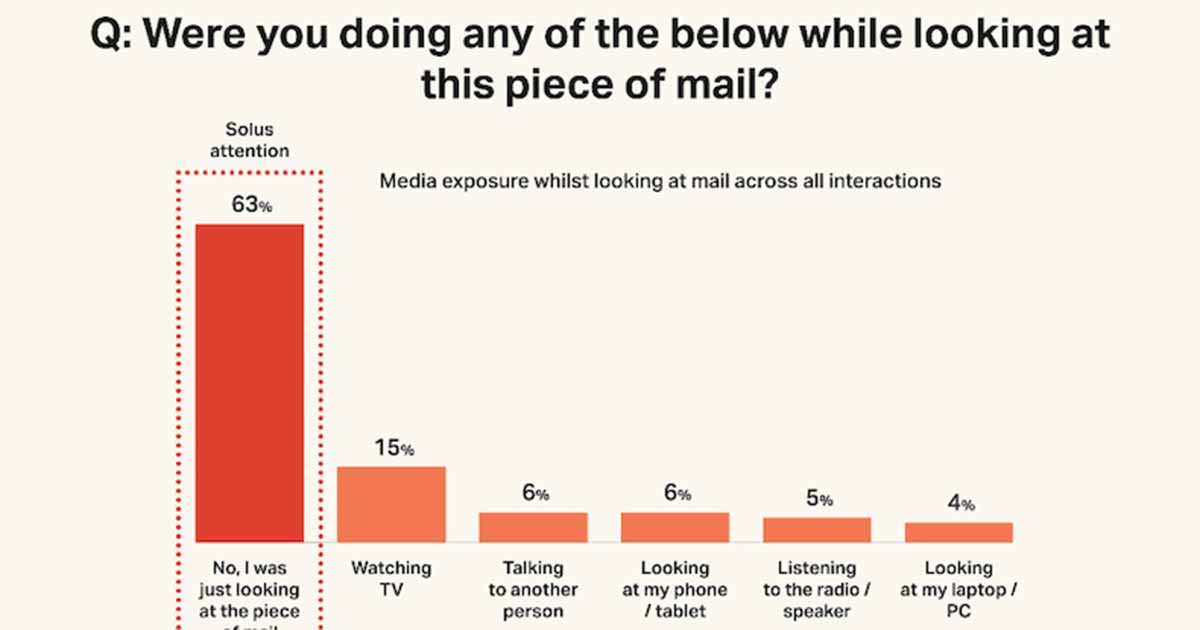
How to Ensure Digital Transformation Success: Take a Data-First Approach
Digital transformation isn't just about technology—it's about using data to drive smarter decisions and business growth. Learn how to build a data-driven strategy. Read more.

A recent WARC and Marketreach report found that 63% of people give traditional mail their undivided attention while looking at it. People spend an average of 150 seconds with business mail, 108 seconds with direct mail, 64 seconds with partially addressed mail, and 46 seconds with door drops.
The JICMAIL study found that business mail and direct mail cost less than social display advertising for a minute of consumer attention. Data was from a study of 1,475 pieces of mail from Marketreach and Blue Yonder and 1,000 mail recipients in the UK.
37% of people typically do something else while looking at their mail. Traditional mail still holds its place as an effective form of communication due to its ability to grab and hold attention.
... continue reading below
Undivided Attention: A Key Benefit of Traditional Mail Marketing
Don't worry ... it's FREE!
Digital transformation isn't just about technology—it's about using data to drive smarter decisions and business growth. Learn how to build a data-driven strategy. Read more.
Many B2B marketers miscalculate TAM, leading to poor strategy and wasted resources. Avoid these 10 common mistakes for accurate market insights. Read more.
Strong brand positioning starts with research. Discover how to analyze customer perceptions, assess competitors, and refine your brand's market position. Read more.
Email marketing alone is not enough. Learn how to expand your strategy to other channels using a specific, gradual approach. Read more.
Word-of-mouth is the top way that marketers hear about new marketing agencies, according to recent research.
Marketers succeed when they have a clear strategy. Marketing strategy frameworks provide a route to success. Here are five to choose from. Read more.